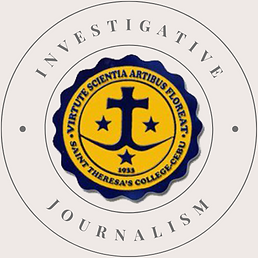

Our Purpose
Our story aims to answer a curiosity we found ourselves asking during the first few meetings of our Investigative Journalism course at St. Theresa’s College - Cebu: If Germany has a
mandatory Holocaust education, does the Philippine public education curriculum have a mandatory martial law subject?
So we initially dug out some related literature and scholarly work and found some interesting things. To the Germans, learning about the Holocaust — the mass slaughter of European civilians and Jews by the Nazis during World War II — through the education system has kept new generations informed of what happened in history.
In the Philippines where former President Ferdinand Marcos declared martial law — the
temporary rule by military authorities of an area during an emergency when the civil authorities are deemed unable to function — in September 1972, the discussions surrounding a mandatory martial law subject among lawmakers over the past several years have not been as vibrant as we expected them to be. But our next-phase exploration to answer a speck of our curiosities has given us answers, which we presented on this website.
To be clear, this academic effort is not a comparison between the Holocaust education and a martial law education. It is to find if there exists a mandatory martial law subject in our country and, if there is, to do an initial check on the extent of its current implementation.
In the process of doing this investigation, we, as Theresian students, kept ablaze in our hearts the transformative power of immersive education and accurate communication as tools to fight disinformation.
Aguilar, M. (2022). Lahug Elementary School. Cebu, Philippines.

Merry Melle Aguilar
Therese Adrienne Alcoseba
Alexa Ma. Araneta
Mary Francis Lynn Caayon
James Jaeson Almagro
Angela Thea Durac
Jenika Gi-An Nero
Nicole Ashlyn Torrepalma
Ulrika Wagas
VISION
MISSION
The country has changed, but the truth of our history has not. Our commitment remains as strong as ever to combatting misinformation and bringing forth light upon the dark reality of the Philippines.
"To evoke the reality of the martial law era unto the minds of the Filipinos."
Scope and Limitation
This story aims to answer our question as to why the Philippine public education system does not have a mandatory martial law subject. The story focuses on how Philippine public school teaches martial law education in classes through the use and analysis of Grade 6 public school textbooks as a reference and the provided curriculum from the Bureau of Curriculum Development, Department of Education.
This story will not extend to the depths of education at other levels due to the limited resources of textbooks available. The goal remains within the bounds of uncovering the disinformation towards the general public with their initial knowledge of martial law. Hence, the strong focus on Philippine public education.

Disclaimer
Republic Act No. 8293 otherwise known as the Intellectual Property Code of the Philippines.
The State recognizes that an effective intellectual and industrial property system is vital to the development of domestic and creative activity, facilitates transfer of technology, attracts foreign investments, and ensures market access for our products. It shall protect and secure the exclusive rights of scientists, inventors, artists and other gifted citizens to their intellectual property and creations, particularly when beneficial to the people, for such periods as provided in this Act.
The use of intellectual property bears a social function. To this end, the State shall promote the diffusion of knowledge and information for the promotion of national development and progress and the common good.
It is also the policy of the State to streamline administrative procedures of registering patents, trademarks and copyright, to liberalize the registration on the transfer of technology, and to enhance the enforcement of intellectual property rights in the Philippines.

.png)

.png)